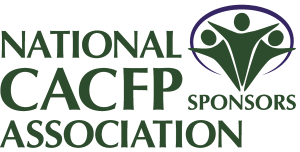On-site/Off-site Monitoring Guidance (CACFP)
April 6, 2023

Flexibilities for Off-Site Monitoring for Certain Requirements
During the pandemic, FNS issued nationwide waivers that allowed State agencies and sponsoring organizations to waive the requirements for onsite monitoring. On June 10, 2023 nationwide onsite monitoring waivers will expire and onsite monitoring requirements for CACFP will be in effect. Some states have off-site monitoring waivers through June 30, 2023. Check with your state agency about when off-site monitoring is ending in your state. USDA has issued guidance with certain off-site monitoring flexibilities, however all three monitoring visits must still be conducted on-site.
Why it Matters
Virtual monitoring waivers have provided flexibilities that have been crucial to the continued, successful, monitoring of CACFP programs. As the waivers are ending, State agencies and sponsoring organizations must prepare to conduct all monitoring visits onsite. USDA’s guidance allows state agencies and sponsoring organizations to conduct some monitoring requirements off-site, however all three visits must be conducted on-site for meal counts.
On-site/Off-site Monitoring Guidance Child and Adult Food Care Program (CACFP)
In response to State agencies and sponsoring organizations implementing innovative solutions to conduct off-site reviews and provide oversight of the CACFP throughout the public health emergency, FNS has developed the following guidance for conducting off-site monitoring. The review must take place at the institution or facility’s location, though portions may be conducted at the State or sponsoring organization’s office, informally known as the ‘desk review’ or ‘desk audit’ portion. There may be a combination of reviews conducted to complete the Program review. For instance, the State agency monitor may evaluate the institution’s single audit, budget, and training attendance via desk review and conduct the balance of the evaluation of the institution’s Program on-site.
Tips for Best Practices
- Plan ahead and communicate.
- Develop a standard process.
- Consider feasibility of a hybrid approach.
- Obtain documents through a secure platform to ensure personally identifiable information is secure.
- Conduct the exit interview can be conducted via video conferencing as an off-site approach.
- Develop checklists and tools to ensure operators are aware of on-site and off-site review requirements and documentation submission procedures.
- Request additional information as needed to resolve issues found in the off-site
portion.
- Request additional information as needed to resolve issues found in the off-site
- Document any off-site elements of the review and interviews.
- Practice using a file sharing platform among staff before conducting a review.
- Evaluate your established review standard procedures and make modifications to reflect latest learned strategies.
CACFP State Agency Review Requirements
| Requirement | Procedures to be Conducted On-site | Procedures with Option to be Conducted Off-site |
| Recordkeeping (7 CFR 226.6(m)(3)(i)) |
Request a sample of records to cover the scope of the last three years plus the current year (dated invoices, training, mileage log, etc.). |
|
| Meal counts (7 CFR 226.6(m)(3)(ii)) |
Visits conducted to verify meal counts (accuracy/up to date) are to occur on-site. |
|
| Administrative costs (7 CFR 226.6(m)(3)(iii)) |
Request and obtain the approved budget and/or amendments, dated invoices and receipts, additional financial records, as needed. |
|
| Applicable instructions and handbooks issued by FNS (7 CFR 226.6(m)(3)(iv)) |
The reviewer can be on-site to observe that all applicable instructions and handbooks have been implemented. |
To meet the intent of this requirement, the reviewer can evaluate documentation that demonstrates that all applicable instructions and handbooks have been implemented. |
| Facility licensing and approval (7 CFR 226.6(m)(3)(v)) | The reviewer must be on-site to observe the number of children and their ages. License must be displayed, as directed by the State agency. | Request and obtain a photo or video of the posted license. |
| Compliance with the requirements for annual updating of enrollment forms (7 CFR 226.6(m)(3)(vi)) |
Request and obtain the enrollment forms for each enrolled participant. Be sure to use a secure file sharing platform to protect personally identifiable information. | |
| If an independent center, observation of a meal service (7 CFR 226.6(m)(3)(vii)) | Meal service observations are to occur on-site. | |
| If a sponsoring organization, training and monitoring of facilities (7 CFR 226.6(m)(3)(viii)) | Request and obtain copies of dated training materials and agendas and attendee sign in sheets. If training is conducted virtually, obtain dated confirmation.Request and obtain copies of monitoring forms, schedules, and tracking log. | |
| If a sponsoring organization of day care homes, implementation of the serious deficiency and termination procedures (7 CFR 226.6(m)(3)(ix)) | Request and obtain records related to serious deficiency declarations, terminations, and appeals for daycare home providers. | |
| If a sponsoring organization, implementation of the household contact system (7 CFR 226.6(m)(3)(x)) |
Request and obtain records related to the implementation of household contacts written policies and procedures, records of contacts, etc.). | |
| If a sponsoring organization of day care homes, the requirements for classification of tier I and tier II day care homes (7 CFR 226.6(m)(3)(xi)) | Request and obtain records (census data, school data, provider income, etc.) used to classify daycare homes as tier I and tier II. | |
| All other Program requirements (7 CFR 226.6(m)(3)(xii)) | Visits conducted to verify Civil Rights compliance are to occur on-site ensuring compliance requirements are routinely implemented and the “And Justice for All” poster is displayed. |
CACFP Sponsoring Organization Review Content
| Review Element | Procedures to be Conducted On-site | Procedures with Option to be Conducted Off-site |
| The meal pattern (7 CFR 226.16(d)(4)(i)(A)) (7 CFR 226.16(d)(4)(i)(E)) |
Requirement: Validate meal items/components and quantities, complete meals, and meal signage on day of review onsite. | Request and obtain copies of menus. Evaluate menus for compliance with meal pattern requirements. |
| Licensing and approval (7 CFR 226.16(d)(4)(i)(B)) |
The reviewer must be on-site to observe the number of children and their ages. License must be displayed, as directed by the State agency. | Request and obtain a photo or video of the posted license. |
| Attendance at training (7 CFR 226.16(d)(4)(i)(C)) |
The reviewer must ensure that the facility has CACFP-trained staff/volunteers on-site during meal service. | Request and obtain copies of dated training materials and agendas and attendee sign in sheets. If training is conducted virtually, obtain dated confirmation. |
| Meal counts (7 CFR 226.16(d)(4)(i)(D)) | Visits conducted to verify meal counts (accuracy/up to date) are to occur on-site. | |
| Menu and meal records (7 CFR 226.16(d)(4)(i)(E)) | The reviewer must observe that the dated menu is displayed at the facility. The reviewer must evaluate supporting documentation (dated invoices/receipts, delivery tickets, documentation of whole grain-rich, sugar in cereal/yogurt, etc.) | Request and obtain copies of dated menus and supporting documentation (dated invoices/receipts, delivery tickets, documentation of whole grain-rich, sugar in cereal/yogurt, etc.). Request and obtain a photo or video of the displayed dated menu. |
| Annual updating and content of enrollment forms (7 CFR 226.16(d)(4)(i)(F)) | Request and obtain the enrollment forms for each enrolled participant. Be sure to use a secure file sharing platform to protect personally identifiable information. | |
| Five-day reconciliation of meal counts (7 CFR 226.16(d)(4)(ii)) | On the day of review (on-site meal service observation) the reviewer must obtain and evaluate the daily attendance and meal counts for a five-day period prior to the day of review. |
To read the full guidance, read On-site/Off-site Monitoring Guidance Child and Adult Food Care Program (CACFP) (CACFP-07-2023).
